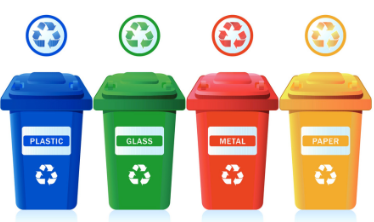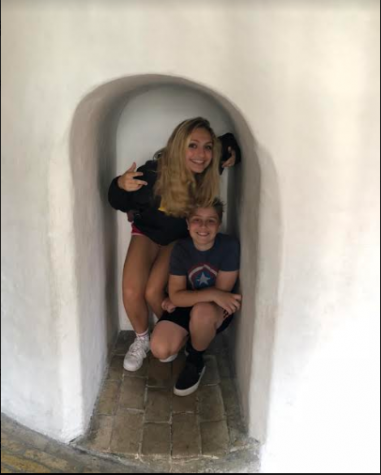Why don’t people Recycle?

“Reduce, reuse, recycle” posters are littered across science classrooms all across the country. Recycling bins are now a staple American restaurants. Hundred of pro-recycling documentaries can be found all over the internet. People are clearly trying to send the message that recycling IS a huge factor in rehabilitating our environment. But the question is…are people listening? The answer is, unfortunately, no. In a study done by the EPA, only 34% of Americans recycle! An average person generates 4 lbs of trash every day and 1.5 tons each year. Furthermore, 75% of America’s waste CAN be recycled, but again, we only recycle 34%.
The question I have is: why? If people are so encouraged and given so many opportunities to recycle, why don’t they? Some point to inconvenience. According to a 2014 study done by Care To Recycle, 56% of Americans have a recycling bin in their kitchen, but only half of that percentage goes to other rooms beyond the kitchen. 16% percent of Americans don’t have one recycling bin in their house – that may not seem like a lot compared to the amount that does, but if you do that math, that’s 52,112,000 Americans that don’t own a single recycling bin, and most likely don’t recycle in other locations either. In their study, 1 in 5 Americans stated that they would recycle more if it was more convenient. Another reason that less and less people recycle is that people are uneducated about the issue. Most people simply don’t know what can and can’t be recycled. In the survey done by Care to Recycle, 28% of people will only recycle if they already know that the item can be. If people are unsure whether something can be recycled, 80% of people will simply throw it out. After conducting a survey among the MHS population, I found that 34% of people didn’t know plastic water bottles and 49% didn’t know that soda cans were recyclable.
Lastly, and probably the saddest of all, is ignorance. Many Americans don’t think recycling is worth it because it won’t change anything. 23% of US adults believe we are doing too much to protect the environment. Even if you walk down the streets of Madison, you will find all types of garbage on the sidewalks, even ones with garbage cans a few feet away. In my walk down Main Street, I collected 3 receipts, a plastic coffee top, a Reese’s Pieces wrapper, a plastic ribbon, and a plastic grocery bag – this was only 2 blocks 3 garbage cans. Time is running out for people to realize how pollution is affecting our environment. For the people that have come to the conclusion that recycling is, in fact, important, there are simple solutions to these issues. First and foremost, we need more recycling bins – in our homes, restaurants, and classrooms. Tiny recycling bins cost $5 each, and nothing to put in rooms around your home, thus slowing down your trip to the nearest recycling bin and making it more “convenient”. Another solution is requiring all food establishments and stores to have recycling bins and putting labels above that specify what can and cannot be recycled. Especially in restaurants where you clear your own table, I’ve found that many only have a trash can, forcing customers to throw out otherwise recyclable waste. Lastly, is more education. Tell your friends about the benefits of recycling! Encourage schools to have recycling bins in every classroom! Find ways to reduce waste altogether! Let your voice be heard, and as a country, we can contribute back to our environment through recycling.
Sources:
Anderson, Monica. “For Earth Day, here’s how Americans view environmental issues.” PEW Research Center. 20 Apr 2017. Accessed 10 Oct 2018.
Elks, Jennifer. “New Study Shows Lack of Bins is Biggest Barrier to Home Recycling”. Sustainable Brands. 14 Apr 2017. Accessed 10 Oct 2018.
“Municipal Solid Waste.” U.S Environmental Protection Agency. Accessed 10 Oct. 2018.
